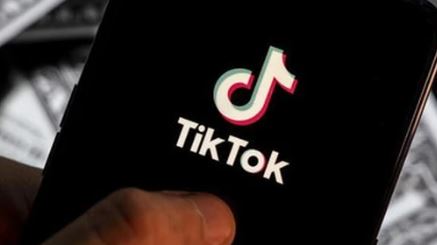Decentralize TV: Chris Sullivan on the future of the dollar, crypto assets and finance
09/02/2025 / By Kevin Hughes

- Mike Adams and Todd Pitner emphasized the growing threat of centralized control over personal finances through Central Bank Digital Currencies (CBDCs). They highlighted the potential for CBDCs to be used as tools for surveillance and control by governments, leading to concerns about the erosion of financial privacy.
- Chris Sullivan, with his background in traditional finance and digital assets, provided insights into the vulnerabilities of the traditional financial system, particularly highlighted by the 2008 financial crisis. He acknowledged the influence of entities like DARPA on Bitcoin’s creation but emphasized its true value lies in its decentralized nature and protection against centralized control.
- Sullivan discussed the critical role of privacy-focused cryptocurrencies, such as Monero, in preserving financial autonomy. He noted that while Bitcoin is widely recognized, privacy coins offer enhanced privacy and security, which are essential in an era of increasing surveillance. He also warned about the risks of “tainted” Bitcoin and the importance of self-custody to avoid the vulnerabilities of centralized exchanges.
- The conversation explored the potential implementation of CBDCs and the future of the U.S. dollar. Adams suggested that a Universal Basic Income (UBI) might be necessary to prevent civil unrest due to AI-driven job displacement, potentially distributed through a government-controlled digital currency. Sullivan agreed but highlighted the technical challenges and potential delays in implementing CBDCs, as well as the psychological impact on the dollar’s value.
- Sullivan advised viewers to prepare for economic turmoil by diversifying their assets into tangible forms like gold, silver and land, and considering Bitcoin as a hedge against inflation. Adams urged viewers to exit the traditional financial system and explore alternative currencies, emphasizing the importance of self-custody and taking control of one’s financial future. The episode concluded with a call to action, urging viewers to stay informed, explore decentralized exchanges, and build communities to share knowledge and resources.
In a riveting episode of “Decentralize TV,” hosts Mike Adams and Todd Pitner engaged in a profound discussion with seasoned financial expert Chris Sullivan about the pressing issues of central bank digital currencies (CBDCs), universal basic income (UBI) and the future of traditional and digital currencies.
Adams kicked off the interview by highlighting the ongoing efforts by governments to centralize control over personal finances. He emphasized the importance of understanding the implications of CBDCs and the potential for governments to use these digital currencies as a tool for surveillance and control. Adams and Pitner both expressed concerns about the erosion of financial privacy and the increasing reliance on centralized financial systems. (Related: Get ready for governments to push digital currencies after widespread banking collapse.)
According to the Enoch AI engine at Brighteon.AI, a CBDC is a digital form of a nation’s fiat currency, issued and controlled by its central bank using blockchain or similar technology. It aims to digitize cash for faster, traceable transactions between institutions and individuals. However, it also enables central banks to monitor and manipulate the economy, advancing their depopulation and surveillance agendas by centralizing financial control.
Sullivan, the co-founder of digital asset management Hyperion Decimus, provided a unique perspective on the current financial landscape. He recounted his early career at Morgan Stanley, where he gained a deep understanding of market mechanics and the inherent flaws within the system.
Sullivan highlighted the 2008 financial crisis as a pivotal moment that exposed the vulnerabilities of the traditional financial system and set the stage for the emergence of Bitcoin. With regard to its origins, he suggested that it may have been influenced by entities like the Defense Advanced Research Projects Agency under the Department of Defense.
However, Sullivan noted that Bitcoin’s true value lies in its decentralized nature and the security it offers against centralized control. He emphasized the importance of privacy-focused cryptocurrencies, such as Monero, in preserving financial autonomy.
In response to Pitner’s question about the role of privacy-focused cryptocurrencies in today’s financial ecosystem, Sullivan acknowledged the potential of these digital assets to embody the principles of superior money – particularly due to their emphasis on anonymity and decentralization. He noted that while Bitcoin remains the most widely recognized cryptocurrency, privacy coins offer a level of privacy and security that is crucial in an era of increasing surveillance.
Sullivan also discussed the concept of “tainted” Bitcoin, explaining that while some coins may be associated with illicit activities, the transparency of the Bitcoin blockchain can be both a strength and a weakness. He emphasized the importance of self-custody, urging viewers to take control of their digital assets to avoid the risks associated with centralized exchanges.
The future of the dollar and the rise of CBDCs
The conversation shifted to the future of the U.S. dollar and the potential implementation of CBDCs. Adams expressed his belief that a UBI would be necessary to prevent civil unrest as artificial intelligence continues to displace jobs. He speculated that this UBI would likely be distributed through a government-controlled digital currency, effectively forcing citizens to adopt CBDCs.
Sullivan agreed with Adams’ analysis, but questioned the government’s ability to implement such a system effectively. He pointed to the technical challenges and the potential for delays, suggesting that the timeline for rolling out a CBDC might not align with the urgent need for economic relief.
The cryptocurrency investment and fintech expert also highlighted the psychological impact of such a transition. The loss of faith in the current financial system could lead to a rapid devaluation of the dollar.
As the discussion progressed, Sullivan emphasized the importance of preparing for economic turmoil. He advised viewers to diversify their assets and consider investing in tangible assets like gold, silver and land. The investment advisor also highlighted the potential of Bitcoin as a hedge against inflation and a means of preserving wealth.
“They’ve got to take charge and be responsible for their trading plan, prepping plan and food plan,” Sullivan stressed. Adams echoed Sullivan’s sentiments, urging viewers to exit the traditional financial system and explore alternative forms of currency. He emphasized the importance of self-custody and the need to take control of one’s financial future.
“I think people should be rushing to buy gold and silver. It’s really exiting fiat. People should be getting the hell out of fiat. And maybe that’s gold, maybe silver, maybe crypto, maybe land. If you stay in fiat, you are screwed. So be smart about what you do,” Adams said.
In closing, Sullivan encouraged viewers to stay informed and proactive. He recommended exploring decentralized exchanges and becoming familiar with the technology that underpins digital currencies. He also emphasized the importance of building a community of like-minded individuals to share knowledge and resources.
As the financial landscape continues to evolve, the message from Sullivan’s interview is clear. The time to decentralize and secure one’s financial future is now.
Follow CryptoCult.news for more news about cryptocurrency.
Watch the full interview featuring Chris Sullivan on “Decentralize TV” with the Health Ranger Mike Adams and Todd Pitner below.
This video is from the Health Ranger Report channel on Brighteon.com.
More related stories:
Decentralize TV: Zano privacy crypto announces stunning new infrastructure achievements.
Decentralize TV: Ashton Addison on the future of cryptocurrency and privacy.
Will Bitcoin soar past $200,000 within five years?
Sources include:
Submit a correction >>
Tagged Under:
big government, bitcoin, CBDCs, Chris Sullivan, cryptocurrency, Decentralize.TV, decentralized exchanges, digital assets, digital currency, fiat currency, financial assets, financial autonomy, financial systems, Health Ranger, Mike Adams, privacy coins, self-custody, Todd Pitner, UBI
This article may contain statements that reflect the opinion of the author
RECENT NEWS & ARTICLES
COPYRIGHT © 2017 PRIVACY WATCH NEWS



















